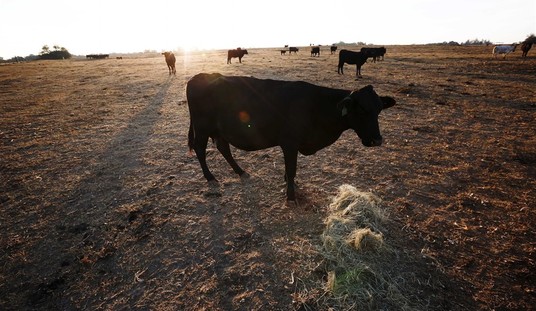This morning’s Gospel reading is Matthew 15:21–28:
At that time, Jesus withdrew to the region of Tyre and Sidon. And behold, a Canaanite woman of that district came and called out, “Have pity on me, Lord, Son of David! My daughter is tormented by a demon.” But Jesus did not say a word in answer to her. Jesus’ disciples came and asked him, “Send her away, for she keeps calling out after us.” He said in reply, “I was sent only to the lost sheep of the house of Israel.”
But the woman came and did Jesus homage, saying, “Lord, help me.” He said in reply, “It is not right to take the food of the children and throw it to the dogs.” She said, “Please, Lord, for even the dogs eat the scraps that fall from the table of their masters.” Then Jesus said to her in reply, “O woman, great is your faith! Let it be done for you as you wish.” And the woman’s daughter was healed from that hour.
A while back, when I worked in middle management in another industry, our company went through one of its regular phases of renaming everything to force us to rethink our assumptions. This time, we were asked to start referring to our departments and sub-groups as “teams,” employees as “team members,” and supervisors as “team leaders.” Managers, such as I was at the time, kept their titles, as did directors and so on, but we were responsible for rolling out the new nomenclature.
The idea was to have everyone rethink their position within their teams and work together more effectively and enthusiastically. By calling ourselves a team, theoretically we would emphasize a shared identity and investment. Some of the employees — excuse me, team members — suggested that paying them more might be a better incentive, but nonetheless we all went along with it. None of our tasks changed, and in the end it didn’t really make any difference at all.
Why not? All we really shared in terms of identity was the name itself. We all belonged to other teams — families, circles of friends, communities of other sorts that truly identified us. Simply changing job titles didn’t add anything to our identities in the workplace, nor did it foster any sense of camaraderie where it didn’t already exist. It was an empty exercise, but harmless enough that no one really minded it.
But what if that’s ultimately true of all sense of teaming? Where should we find our identity — in our genetics, or in our sacramental existence with the Lord?
Jesus offered his followers a sense of the answer in this Gospel reading today, along with at least one memorable parable to which we’ll get in a moment. Matthew describes this scene with a Canaanite woman who sees Jesus as the rightful “Son of David,” and asks for His mercy on her daughter. Jesus rejects her at first by telling his disciples that his mission is aimed at the Israelites, and then tells her directly that her status as an outsider puts her in the analogous position of a dog — which would have been an even stronger insult in those times as it would be today.
And yet, the Canaanite woman did not lose faith in Christ’s mercy. Instead, she accepts Jesus’ analogy and asks only for the “scraps” of His mercy, trusting that would be enough to drive the demon from her daughter. She understands her status, and yet knows that Christ was called to be more than just a teacher among Israelites. Jesus responds to her faith by granting her mercy, and teaching the disciples by example that the distinctions of identity, tribe, and ethnicity would pass away in the kingdom of God.
This parallels the parable of the Good Samaritan. In Luke 10:25-37, Jesus instructs the disciples on the core of the Law: “‘Love the Lord your God with all your heart and with all your soul and with all your strength and with all your mind’; and, ‘Love your neighbor as yourself.’” He tells the parable of the traveler attacked by robbers:
“A man was going down from Jerusalem to Jericho, when he was attacked by robbers. They stripped him of his clothes, beat him and went away, leaving him half dead. A priest happened to be going down the same road, and when he saw the man, he passed by on the other side. So too, a Levite, when he came to the place and saw him, passed by on the other side. But a Samaritan, as he traveled, came where the man was; and when he saw him, he took pity on him. He went to him and bandaged his wounds, pouring on oil and wine. Then he put the man on his own donkey, brought him to an inn and took care of him. The next day he took out two denarii[e] and gave them to the innkeeper. ‘Look after him,’ he said, ‘and when I return, I will reimburse you for any extra expense you may have.’
“Which of these three do you think was a neighbor to the man who fell into the hands of robbers?”
Who were the three men? The first two are Israelites, on the same “team” as the victim from Jerusalem. The third was a Samaritan, a community considered heretical by the Israelites and Judeans of that time, so much so that it would have been considered shocking to interact with each other, as it was when Jesus spoke to the Samaritan woman. This parable was an even more direct challenge to the concepts of community, and to the scope of salvation; Jesus emphasized in the parable that the Samaritan might be better disposed toward God than the two Israelites, a suggestion that would no doubt have rattled others, especially the scribes and the Pharisees.
In our Old Testament reading today, Isaiah proclaims that the path to salvation is open to all. “The foreigners who join themselves to the Lord,” Isaiah preaches, will be brought “to my holy mountain and make joyful in my house of prayer[.]” The Lord will accept their sacrifices, “for my house shall be called a house of prayer for all peoples.” This echoes the original mission of Israel for salvation from God — to serve as a nation of priests and to bring the whole world to His kingdom.
Jesus fulfills this mission by reversing it: He sends a “nation” of priests to the world to bring salvation to them. Regardless of their identity, their appearance, their location, all are children of God to be brought the Gospel. Salvation does not come from team identity, nationality, or from family descent. It comes from embracing the will of the Lord and identifying ourselves in Him.
Paul’s letter to the Romans also demolishes the myth of tribal identity in terms of salvation. In our second reading, Paul says he “glor[ies] in my ministry to make my race jealous and thus save some of them.” Gentiles had disobeyed the Lord but “have now received mercy because of their disobedience,” and Paul writes to the church in Rome that the mercy shown to the Gentiles for their disobedience will be the salvation of the Israelites as well. “For God delivered all to disobedience, that he might have mercy upon all.”
Paul would teach this more explicitly in Galatians 3:26, that in salvation we all have only one identity, one defining characteristic:
So in Christ Jesus you are all children of God through faith, for all of you who were baptized into Christ have clothed yourselves with Christ. There is neither Jew nor Gentile, neither slave nor free, nor is there male and female, for you are all one in Christ Jesus. If you belong to Christ, then you are Abraham’s seed, and heirs according to the promise.
For this reason, we need to put aside the tribal impulses and oppositional constructs of identity. We are all children of God, the only “team” we need for our salvation.
The front-page image is a detail from “Christ and the Canaanite Woman” by Jean-Germain Drouais, 1784, currently on display at the Louvre.
“Sunday Reflection” is a regular feature, looking at the specific readings used in today’s Mass in Catholic parishes around the world. The reflection represents only my own point of view, intended to help prepare myself for the Lord’s day and perhaps spark a meaningful discussion. Previous Sunday Reflections from the main page can be found here. For previous Green Room entries, click here.








Join the conversation as a VIP Member